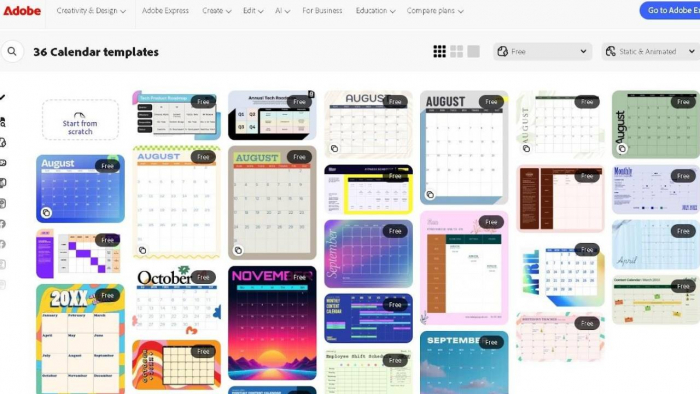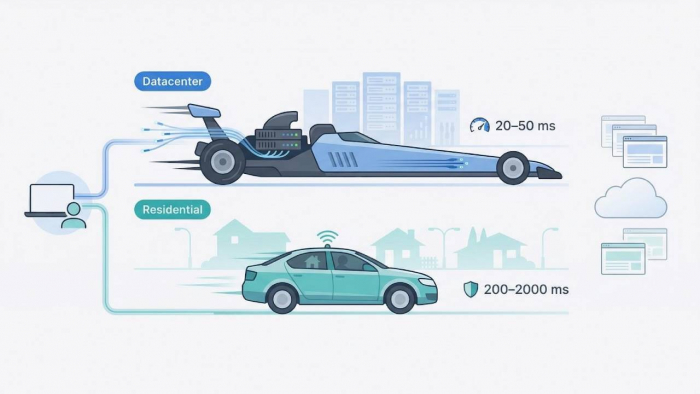Many online users never want their identities revealed. Privacy-conscious users, whistleblowers, and activists want to keep their sensitive data from leaking to malicious actors. Businesses using proxies for competitive analysis, web scraping, and market research desire to stay undetected. Proxy header evaluation tools provide robust solutions for protecting your online anonymity and security.
People can use these tools to secure their internet activities. Similarly, organizations can leverage them to check for the reliability and compliance of their proxy networks. The best proxy header evaluators ensure secure connections and robust privacy.
4 Ways Proxy Header Evaluation Tools Can Ensure Online Anonymity
Proxy header evaluation tools analyze the headers of proxy servers during web requests. These headers reveal your browser information, IP address, and location. Scrutinizing them enables the tools to detect would-be vulnerabilities and leaks. They identify weak sections of the connection that can expose sensitive data and compromise your privacy. These tools can also determine the functionality of the proxies. You can use proxy header evaluation tools to keep your connections anonymous and remove identification details.
Inspect Headers

The best header evaluators for proxy servers check the data transmitted during HTTP responses and requests. The tools intercept the communication between the server and the user, examining the metadata within the headers. A proxy headers test can reveal the X-Forwarded-For, User-Agent, and Via fields. Evaluating these ensures the tools can determine how efficiently the proxy anonymizes requests and masks sensitive details.
As mentioned earlier, header inspections reveal IP address, proxy type, and device information. The best header evaluators can flag headers that reveal sensitive user data. Using the best proxy header testing tools can help you determine how the proxy filters and obfuscates geolocation, IP addresses, and device details. In other words, these tools verify the robustness of proxies in ensuring online security and privacy.
Verify Anonymity Type
High-quality header evaluators analyze proxy behaviors and headers during web requests. The tools inspect header-identifying fields like Via and X-forwarded-For to detect the quality of the anonymity offered. Proxy header evaluation tools can quickly identify transparent proxies because they seldom hide the user's IP. By comparison, high-anonymity proxies eliminate all identification information.
Proxy header evaluators categorize proxies into various categories and report their findings. Some tools simulate real-world interactions to investigate the behavior of proxies under diverse conditions. They are excellent for verifying the efficiency to avoid privacy leaks.
Detect Potential Leaks
Proxy header evaluation tools inspect the HTTP headers sent by the browser during web requests. Well-configured proxies reroute your internet traffic through a server to mask the original IP address. Misconfigured or ineffective proxies usually transmit HTTP headers containing the original IP address. Web servers can automatically check these headers to reveal your original IP address.
DNS leaks occur when your device transmits DNS queries through the default settings instead of routing them via the proxy. High-quality tools simulate and analyze requests to find susceptibilities. Proxy header evaluation tools can compare the IP address you reveal to websites and those generated by the proxy server. After finding discrepancies, the tools will highlight the exposure, ensuring you can take the best steps to boost your online anonymity.
Check Compliance
Internet users want to maintain the integrity and authenticity of their connections. Proxy header evaluation tools inspect HTTP headers like X-Forwarded-For, Forwarded, and X-Real-IP. They can authenticate the validity of requested metadata. Headers reveal the original hostname, client IP address, and protocol after traffic flows through proxies. These tools can analyze the formats followed by the headers, ensuring they are from trusted sources and align with server configurations.
The best proxy header evaluators can detect tampering or spoofing, including unexpected values and forged IP addresses. These showcase efforts to circumvent access controls or mask a request's true origin. The tools ensure that proxy headers meet the highest organizational and regulatory standards. They verify whether your proxy headers meet Zero Trust, GDPR, and HIPAA frameworks. Also, they verify the masking ability of the IP addresses to protect your privacy. This way, requests routed through approved proxies can maintain the highest security standards.
Conclusion
Proxy header evaluation tools are robust solutions for maintaining online security and privacy. They scrutinize headers channeled through proxy servers. You can detect leaks, assess the anonymity level, and ensure that proxies meet desirable privacy standards. These tools are incredible for organizations using proxy servers for professional tasks. Individuals safeguarding personal data can also leverage them to verify and optimize proxy configurations. When used correctly, they address vulnerabilities and enhance reliability to empower users.
Post Comment
Be the first to post comment!





